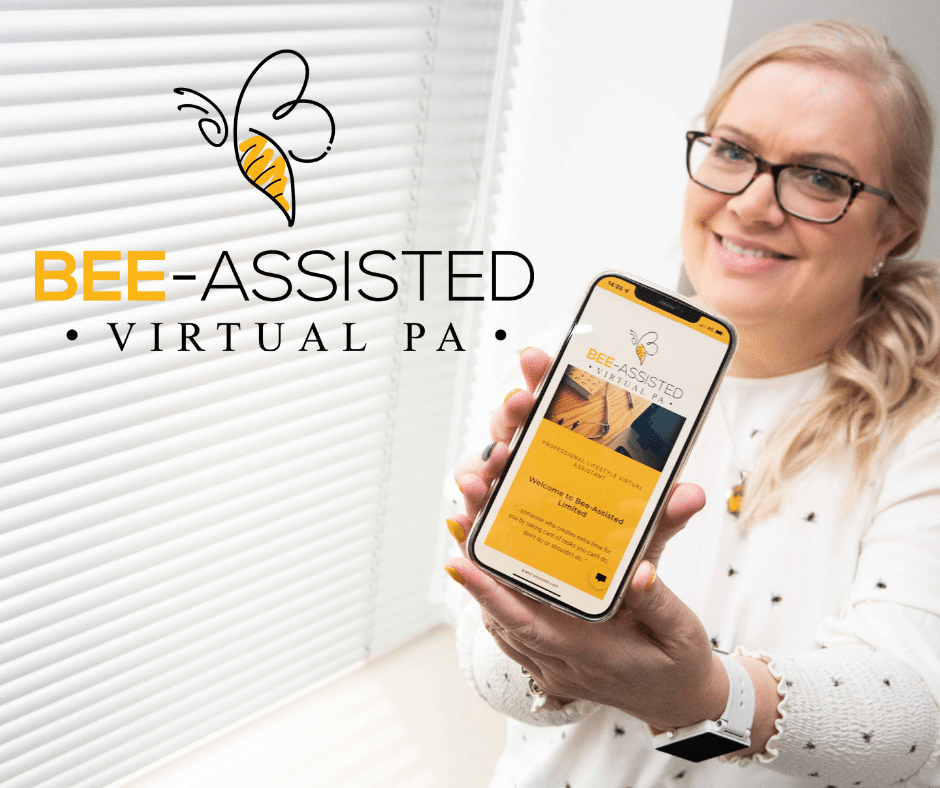
AI: A Game-Changer for Virtual Assistants
The virtual assistant industry is undergoing a seismic shift, thanks to the rapid advancements in artificial intelligence (AI). Once primarily seen as administrative support, the role of virtual assistants is evolving into a strategic partnership, powered by AI.
The advent of artificial intelligence (AI) is reshaping industries worldwide, and the virtual assistant sector is no exception. Once primarily focused on administrative tasks, virtual assistants are evolving into strategic partners, leveraging AI to enhance their services and deliver unparalleled value to clients.
AI: Your New Virtual Sidekick
AI’s totally changing the game for virtual assistants. Don’t worry, we’re not getting replaced – but AI is becoming our super-powered sidekick.
Imagine this: AI handles the boring stuff like scheduling and emails, so we can focus on the fun stuff – like being your personal problem solver and creative helper. Plus, AI helps us crunch numbers and find patterns, so we can give you even better advice.
It’s like having a super smart assistant that works 24/7. But remember, we humans still bring the empathy, creativity, and that personal touch that robots just can’t match.
Overreliance on AI
While AI is a powerful tool, it’s important to avoid overreliance on it. Human judgment and expertise are still essential for many tasks. Virtual assistants should use AI as a complement to their skills, rather than as a replacement.
By understanding and addressing these challenges, virtual assistants can harness the power of AI while maintaining their value as trusted advisors to clients.
AI: The New Frontier for Virtual Personal Assistants
The advent of artificial intelligence (AI) is reshaping industries worldwide, and the virtual assistant sector is no exception. Once primarily focused on administrative tasks, virtual assistants are evolving into strategic partners, leveraging AI to enhance their services and deliver unparalleled value to clients.
The AI Advantage
AI is poised to revolutionise the way virtual assistants operate by automating routine tasks, providing data-driven insights, and enhancing communication. Here’s a deeper look at how AI is transforming the role:
Task Automation
- Routine administrative tasks: AI-powered tools can handle repetitive tasks like email filtering, scheduling appointments, and expense reports, freeing up virtual assistants to focus on higher-level tasks.
- Data entry: AI can accurately extract information from documents, invoices, and receipts, reducing the time spent on manual data input.
- Social media management: AI can assist in scheduling posts, analysing engagement metrics, and identifying trends. It can even be used for interaction on Social Media platforms!
Enhanced Decision Making
- Data analysis: AI can process vast amounts of data to identify patterns and trends, providing valuable insights for clients.
- Predictive analytics: By analysing past behaviour and preferences, AI can anticipate client needs and provide proactive support.
- Market research: AI can gather and analyse market data, helping virtual assistants stay informed about industry trends.
Improved Communication
- Natural language processing: AI-powered chatbots and virtual assistants can handle initial client inquiries, providing quick responses and freeing up human agents for more complex issues.
- Language translation: AI can facilitate communication with clients from different linguistic backgrounds.
- Sentiment analysis: AI can analyse customer feedback to identify areas for improvement and enhance client satisfaction.

However, The Human Touch Remains Essential
While AI offers significant advantages, it’s important to emphasise that human interaction remains indispensable. AI is a tool, not a replacement for the empathy, creativity, and problem-solving skills that virtual assistants bring to the table.
- Empathy and emotional intelligence: AI may be able to process information, but it lacks the ability to understand and respond to human emotions.
- Strategic thinking: Virtual assistants will continue to be valuable for developing and implementing strategies to achieve client goals.
- Building relationships: Human connection is crucial for building trust and loyalty with clients.
New Roles and Opportunities
As AI transforms the virtual assistant industry, new roles and opportunities will emerge.
- AI specialist: Virtual assistants with expertise in AI and machine learning can help clients leverage these technologies.
- Data analyst: The ability to analyse data and extract valuable insights will become increasingly important.
- Creative problem solver: As AI handles routine tasks, virtual assistants will need to focus on creative problem-solving and strategic thinking.
Challenges and Considerations
While AI offers many benefits, it also presents challenges.
- Job displacement: There are concerns about AI replacing virtual assistant jobs, but the reality is more likely to involve job transformation rather than elimination. VA’s should be learning about AI and how it can help us with our roles.
- Data privacy: Protecting client data is paramount, and virtual assistants must ensure that AI tools comply with data privacy regulations. This can be a very real concern for our clients so understanding this and making sure we are working within GDPR guidelines is crucial.
- Ethical considerations: The use of AI raises ethical questions, such as bias and accountability.
The Future of Virtual Assistance
The future of virtual assistance is bright, with AI as a powerful catalyst for growth and innovation. By embracing technology and developing a strong foundation in human skills, virtual assistants can position themselves as indispensable partners to clients. As the industry continues to evolve, virtual assistants who can effectively leverage AI will be at the forefront of this exciting new era – it’s a time of change and we need to embrace it.
The good news is that AI is also creating new opportunities. We’re becoming more strategic, more data-driven, and more valuable to our clients. It’s like levelling up in a video game, but with real-life rewards.
So, while there might be a few bumps in the road, the future looks bright for virtual assistants. We’re excited to see where this AI adventure takes us, and we can’t wait to be your partner in crime.
A Few Examples of AI Platforms for Virtual Assistants
AI platforms can significantly enhance the efficiency and capabilities of virtual assistants. Here are some examples:
General AI Assistants
- ChatGPT (OpenAI): This powerful language model can generate text, translate languages, write different kinds of creative content, and answer your questions in an informative way.
- Google Bard: Similar to ChatGPT, Bard can provide summaries of factual topics or create stories.
- Jasper.ai: This AI writing assistant can help with content creation, social media, email, and more.
- Gemini: Gemini is Google’s latest and most advanced AI model. It’s designed to be multimodal, meaning it can understand and process different types of information like text, code, audio, image, and video. This makes it incredibly versatile and capable of performing a wide range of tasks
Task-Specific AI Tools
- Grammarly: While primarily known for grammar and spelling checks, Grammarly also offers advanced AI features for style and tone suggestions.
- Canva: This design platform utilises AI for image generation, design suggestions, and content creation.
- Zoom: AI-powered features like automatic transcription, noise cancellation, and virtual backgrounds can enhance virtual meetings.
- Calendly: AI-driven scheduling tools can optimise meeting times and reduce back-and-forth emails.
- Zapier: While not AI-driven itself, Zapier can automate tasks between different apps, saving virtual assistants time.
Project Management and Productivity Tools
- Asana: AI-powered features can help with task prioritisation, workload management, and project forecasting.
- Trello: AI-driven automation can streamline workflows and improve team collaboration.
LINKS
For more information about Cath, visit: https://bee-assisted.com/
Social media:
LinkedIn Personal Profile: https://www.linkedin.com/in/cath-harrisonbee/
Facebook: https://www.facebook.com/beeassisted.co.uk/
Twitter: https://twitter.com/AssistedBee
LinkedIn Company Page : https://www.linkedin.com/company/bee-assisted-limited







